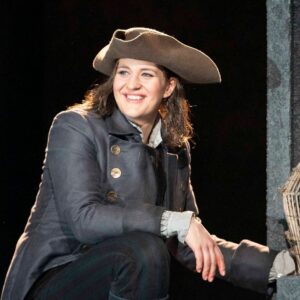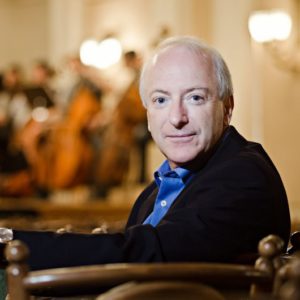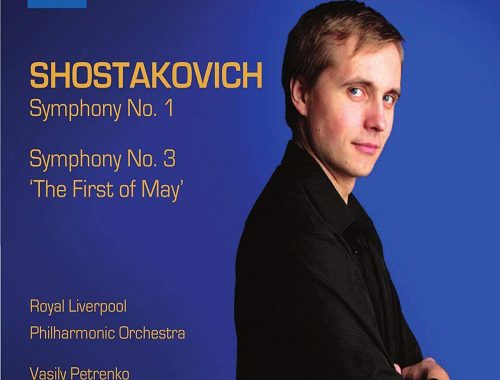GRAMOPHONE: From Where I Sit – June 2020
 I want to reopen the debate on Beethoven and the voice. And particularly with regard to Fidelio which I caught at the Royal Opera House in the wake of a lively public encounter with Antonio Pappano at London’s Bishopsgate Institute. To say that the reviews for Tobias Kratzer’s interesting new staging were decidedly Marmite might be deemed a colossal understatement – but this is an opera which has always struggled with its theatrical identity – part domestic drama, part political statement – and the loftier part of that equation (you might even call it a ‘game of two halves’) has inevitably been hijacked by directors seeking to adopt it as the ultimate in ‘cry freedom’ agitprop. For sure there is no denying that the final chorus, the alternative ‘ode to joy’, is monumentally liberating, its syncopations quite literally cutting across, indeed breaking down, traditional bar-lines. Its communal fervour renders any staging almost superfluous.
I want to reopen the debate on Beethoven and the voice. And particularly with regard to Fidelio which I caught at the Royal Opera House in the wake of a lively public encounter with Antonio Pappano at London’s Bishopsgate Institute. To say that the reviews for Tobias Kratzer’s interesting new staging were decidedly Marmite might be deemed a colossal understatement – but this is an opera which has always struggled with its theatrical identity – part domestic drama, part political statement – and the loftier part of that equation (you might even call it a ‘game of two halves’) has inevitably been hijacked by directors seeking to adopt it as the ultimate in ‘cry freedom’ agitprop. For sure there is no denying that the final chorus, the alternative ‘ode to joy’, is monumentally liberating, its syncopations quite literally cutting across, indeed breaking down, traditional bar-lines. Its communal fervour renders any staging almost superfluous.
I actually think that Tobias Kratzer had something important to say with his Royal Opera production and, without going into details, did so by juxtaposing the ‘traditional’ with the contemporary and by cleverly challenging our voyeuristic complicity in the politics of oppression. Florestan’s dungeon became a kind of exhibit or installation, something to provoke outrage rather than action.
But I return to the issue of Beethoven and the voice. There are awkwardnesses here that even the likes of Lise Davidsen and Jonas Kauffman could not disguise or indeed make light of – though Davidsen came close to giving the lie to that theory and despatching the crazy tessitura and impossible runs and groupings of ‘Abscheulicher!’ (drama before singability) with astonishing accuracy and resolve. Leonore is famously a role which sits between mezzo and soprano and has been beloved and feared by both.
When I was a teenager I blagged a ticket for one of the very few performances that the great Christa Ludwig gave of the role before realising that the final scene which has her and Florestan thanklessly hammering away at the top of the stave was too unforgiving to keep in her repertoire. This performance was at the Salzburg Festival under Karl Böhm and it rendered me speechless for about an hour after the final chorus had blown away all rational thinking. Consider other names in that cast: Edith Mathis, James King, and (I can hardly believe) Hans Hotter as Don Fernando.
The point, I think, is that Beethoven writes ‘instrumentally’ for the voice – and the spirit conveyed by the words sometimes pays little or no heed to the role that breathing plays in the articulation of the notes therein. Even poor Marzelline has some impossibly breathy runs. Perhaps deliberate to convey her infatuation with Fidelio and frustration with Jaquino? The fury and hopefulness of ‘Abscheulicher!’, the delirium of Florestan’s ‘Gott! Welch Dunkel hier’ where the wild tessitura of the climax invokes a feverish vision of his beloved Leonore which has less to do with singing than an almost animalistic venting.
But then again there is the simple quiet ecstasy of the canonic quartet ‘Mir its so wunderbar’ where I alway recall the great William Mann’s description of the moment where music ‘below stairs’ becomes the music of the angels. In short, Beethoven’s ‘voicings’ are not, and never were, ‘of this earth’. Think Beethoven, think cosmic.
You May Also Like

A Conversation With RICHARD BLACKFORD
02/09/2011
A Conversation With VASILY PETRENKO: Shostakovich Cycle 1 and 3
02/09/2010

